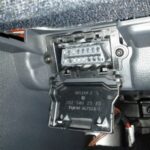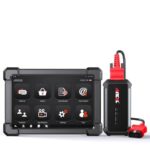Integrating an OBD2 app with your Android car stereo can significantly enhance your driving experience, offering real-time vehicle diagnostics and performance monitoring directly on your dashboard. However, users sometimes encounter difficulties when trying to establish a connection between their OBD2 dongle and the Android head unit. This article aims to guide you through common problems and troubleshooting steps to ensure seamless connectivity, focusing on using your “Android Stereo App Obd2 App” effectively.
One of the primary hurdles users face is Bluetooth pairing. Often, the Android car stereo struggles to recognize or correctly pair with the OBD2 Bluetooth adapter. This can manifest as incorrect pairing codes, connection timeouts, or simply the adapter not appearing in the list of available devices. Several factors can contribute to these issues, ranging from compatibility problems to incorrect settings on either the stereo or the OBD2 dongle.
To address these connection problems and get your “android stereo app obd2 app” working smoothly, consider the following troubleshooting steps:
- Verify OBD2 Dongle Compatibility: Ensure your OBD2 Bluetooth dongle is compatible with Android devices and the specific Bluetooth version supported by your car stereo. Some older dongles might not work reliably with newer Android versions or car stereos. Check the manufacturer’s specifications for compatibility details.
- Check Bluetooth Settings on Your Android Stereo: Navigate to the Bluetooth settings menu on your Android car stereo. Ensure Bluetooth is enabled and that the stereo is set to be discoverable. Sometimes, toggling Bluetooth off and back on can resolve temporary glitches. Also, check if there are any specific settings related to pairing codes or auto-connection that might be interfering with the process.
- Try a Different OBD2 App: The issue might not always be with the Bluetooth connection itself but with the “android stereo app obd2 app” you are using. Some apps might have compatibility issues with certain Android versions or OBD2 dongles. Experiment with different OBD2 apps from the Google Play Store to see if another app establishes a more stable connection. Popular and generally reliable OBD2 apps include Torque Pro, OBD Fusion, and Car Scanner ELM OBD2.
- Reset Your OBD2 Dongle: Some OBD2 dongles have a reset button or a procedure to reset them to their factory defaults. Consult your OBD2 dongle’s manual to see if a reset is possible and how to perform it. This can sometimes clear out old pairing data or configuration issues that might be preventing a successful connection.
- Ensure Proper OBD2 Dongle Insertion: Double-check that your OBD2 dongle is firmly and correctly inserted into your vehicle’s OBD2 port. A loose connection can lead to intermittent or failed communication.
By systematically working through these troubleshooting steps, you should be able to identify and resolve the connection problems preventing you from using your “android stereo app obd2 app” with your Android car stereo. Remember to consult both your car stereo’s manual and your OBD2 dongle’s documentation for specific instructions and compatibility information. Enjoy the enhanced vehicle insights and control that a properly connected OBD2 app can provide.

